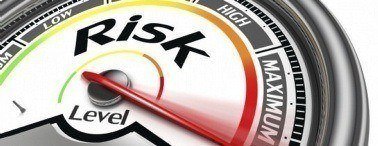
Black outs can happen at any time of year and many homeowners want the assurance that a backup power system offers. Ensure your home electrical system will work in severe weather conditions, grid failure and brown outs with one of these top five options for backup power.
Portable Generator
Perhaps the most popular option for suburban homes, a portable generator can be easily stored and utilized at various locations. When you move, a portable, fuel-powered generator moves along with you and the equipment can be taken to your cottage or brought along on a camping trip for power usage. But this portability also leaves your backup power system vulnerable to theft.
Lock up your portable fuel generator when not in use and consider using security measures to keep in safe during a power outage as well.
Portable generators require a constant source of fuel, most often diesel or gasoline. This fuel must be stored properly and does produce emissions during use. Portable generators also tend to be loud and need to be set up outside your home while in use.
A portable generator must be properly grounded as well and when used to power your household electrical system, this style of generator should be wired into an auxiliary breaker panel.
You can buy this type of generator from most major hardware stores and rental centers, ranging in price from $600 to $3,000, depending on the size. A portable fuel-powered generator will run essential AC loads while the fuel lasts, including your furnace, sump and well pumps, refrigerator and emergency lighting. Most other appliances will overload this backup power source.
Permanent or Fixed Generator
When space and budget permits, a permanent or fixed generator makes good sense. Run on diesel or gasoline fuel, this system is much like a portable generator, but handles larger loads and cannot be moved. There is little risk of theft and some homeowners opt to add a battery bank for greater reliability in long-term power outages.
Permanent generators are widely used by commercial establishments and must be installed by a professional, licensed electrician. Purchase this system from an electrical supply retailer or speak to your electrician about sourcing the size and make that your home requires. Typical costs range from $3,500 to $5,000, depending on the size and installation costs.
A fixed generator can handle all the same loads as a portable generator, along with some appliances. This system requires a transfer switch and inverter. A charger is required for generators with a battery bank.
Solar Generator
Renewable energy sources are gaining in popularity across North America, and small residential systems are now available for a reasonable investment. A single panel or multiple panel PV (photovoltaic) solar generator mounts directly to your roof or ground-mount framing. Portable systems are available, although with only limited generation.
Solar panels produce DC electricity, and should be used to power up DC appliances and lighting. Some homeowners also add an AC inverter to expand the function of this backup power system. A twin panel or multiple panel system is required to power appliances like microwaves.
Battery banks make these systems more practical, but must be maintained and replaced every eight to ten years. This backup system is permanently installed in a secure, dry location with conduits and wires connecting the inverter, panels and a separate panel board.
Although DIY products have flooded the market, a quality solar generator should be installed by a professional electrician. Find a contractor that specializes in renewable energy systems and you will have a source for maintenance parts and advice. Systems range from around $1,000 for a single panel, portable model to well over $4,000 for a twin panel system that can be effectively used to power up your essential home electrical needs in a power outage.
Wind Generator
Suitable for larger rural properties, wind turbines can be used in locations with the proper zoning and weather patterns. Installing a wind turbine in an area with little wind exposure does not make economic sense, but this solution presents several benefits to certain properties.
Wind speed is essential. Find out the wind speed on your property from a local weather source or through testing. If the average annual speed exceeds 4 miles/second, a wind turbine can be used for backup power.
Remember that wind does not blow at a constant speed, and therefore power generation must be transferred to a battery bank via an inverter. A separate breaker panel should be installed and in certain circumstances, the power can be fed back into the grid through a reverse meter.
Use a wind turbine to power well pumps, heating units, emergency lights and other essential power. This system does require regular maintenance and must be designed and installed by a licensed specialist. Prices range, depending on the size of turbine and location.
Battery Backup System
A traditional type of backup power still used by many, a battery backup system can handle both AC and DC loads, depending on the design. Single battery systems work well for power outages lasting only a few hours, while larger battery bank systems or those that utilize a vehicle battery can provide steady power for one to two days.
Battery backup systems require an inverter and some require a charger. Quality systems also provide protection against overheating, a common problem with this type of generator. Look for products with a deep cycle battery for better dependability. Grounding is essential for safety.
Depending on the type of battery backup system, these products are available online, at your local hardware store, automotive parts store or from trailer and boating retailers. Prices range from $400 for a single battery system to more than $5,000 for a system with greater power capacity.
Protect your family by ensuring your home electrical needs are looked after with a backup power system. Whether you opt for a portable fuel-powered generator, fixed generator, solar or wind powered system or a battery backup generator, these electrical systems provide peace of mind in power outages.
Posted by: TrustedPros





